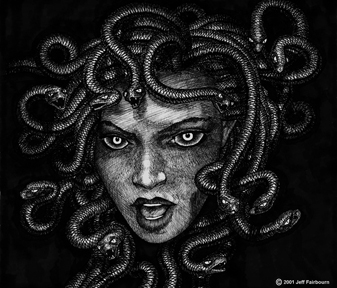Former marriage equality foe David Blankenhorn, founder of the conservative think tank The Institute for American Values, made waves last summer with a New York Times editorial describing his conversion to supporting equal rights for same-sex couples. He describes his journey of belief in more detail in a recent interview with Brent Childers of Faith in America, a foundation that combats religion-based prejudice against LGBT Americans. The 20-minute video is well worth watching.
I was inspired and impressed by the depth of Blankenhorn’s new understanding. He might have stopped at mere inclusion of “them” in “our” social institutions, but instead he was led to examine his own privileges as a straight white Christian man, and to refocus his theological priorities from legalism to empathy. Around the 13-minute mark, he discusses his realization that any time we use our doctrines and scriptures as a wall or a veil to avoid seeing the other person’s full humanity, we completely miss the point of our faith.
What changed Blankenhorn’s mind and heart? He says he had been parroting anti-gay rhetoric from his conservative Christian culture, but the people affected were still only abstractions to him, till he met actual queer families and heard their life stories. Ironically, these encounters occurred because of his role as an expert witness in favor of California’s gay marriage ban, Proposition 8. Looks like Harvey Milk’s advice still works: real-life examples of “out” LGBT people have the power to break down the myths that keep oppression in place.
I’m reminded also of Rachel Held Evans’s recent post, “The Scandal of the Evangelical Heart“, where she chastises her fellow Christians for being willing to suppress compassion in the service of doctrinal correctness. While the examples she cites have to do with natural disasters and genocide, her point applies equally well to privileged straight Christians’ glib dismissal of the burdens they would impose on LGBT people.
…[W]hat makes the Church any different from a cult if it demands we sacrifice our conscience in exchange for unquestioned allegiance to authority? What sort of God would call himself love and then ask that I betray everything I know in my bones to be love in order to worship him? Did following Jesus mean becoming some shadow of myself, drained of empathy and compassion and revulsion to injustice?Perhaps in reaction to the “scandal of the evangelical mind,” evangelicalism of late has developed a general distrust of emotion when it comes to theology. So long as an idea seems logical, so long as it fits consistently with the favored theological paradigm, it seems to matter not whether it is morally reprehensible at an intuitive level. I suspect this is why this new breed of rigid Calvinism that follows the “five points” to their most logical conclusion, without regard to the moral implications of them, has flourished in the past twenty years. (I heard a theology professor explain the other day that he had no problem whatsoever with God orchestrating evil acts to accomplish God’s will, for that is what is required for God to be fully sovereign! When asked if this does not make God something of a monster, he responded that it didn’t matter; God is God—end of story.) And I suspect this explains why, in the wake of the Sandy Hook tragedy, so many evangelical leaders responded like Job’s friends, eager to offer theological explanations for what happened instead of simply sitting down in the ashes and weeping with their brothers and sisters…
